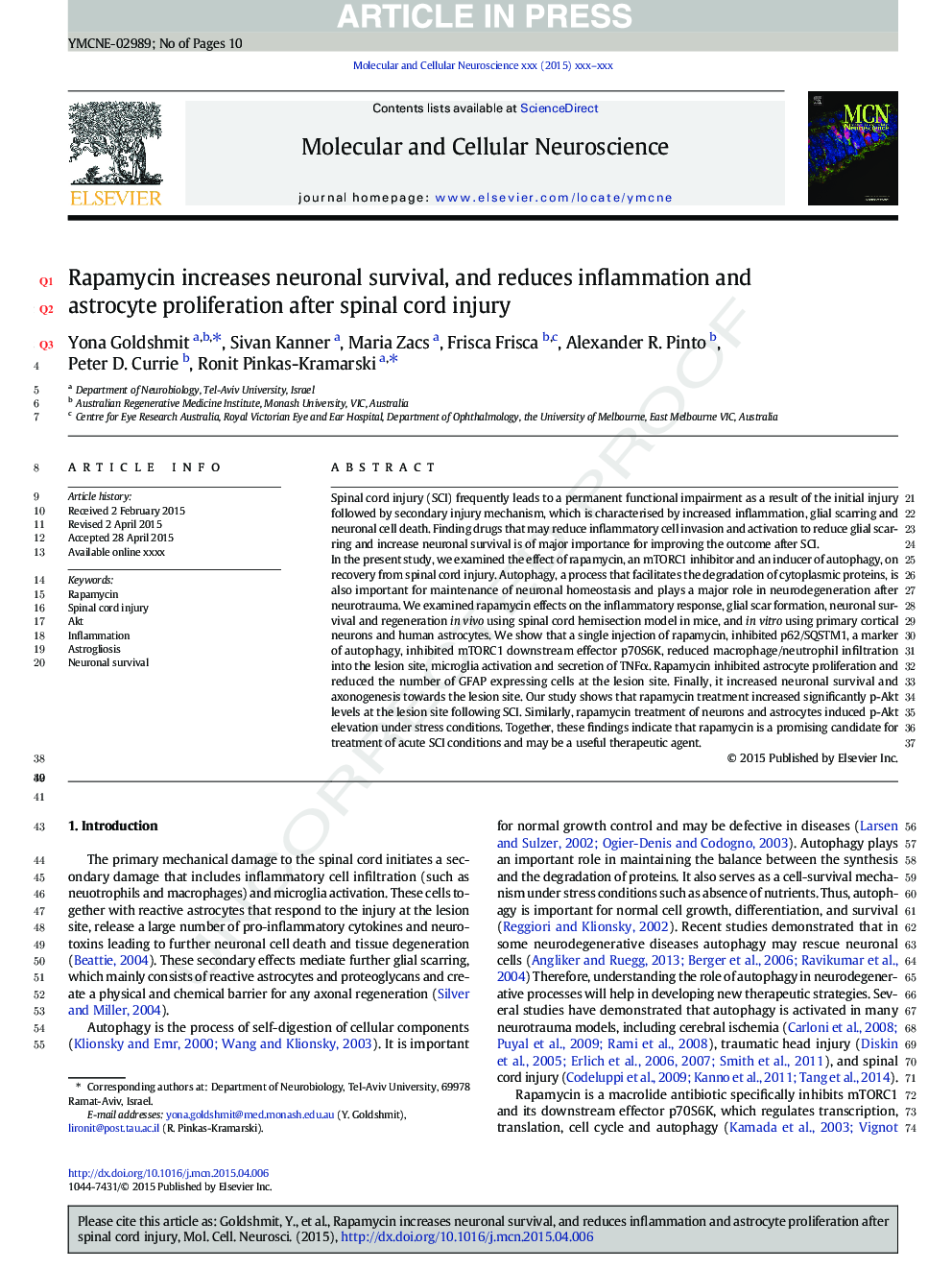| کد مقاله | کد نشریه | سال انتشار | مقاله انگلیسی | نسخه تمام متن |
|---|---|---|---|---|
| 8478525 | 1551138 | 2015 | 10 صفحه PDF | دانلود رایگان |
عنوان انگلیسی مقاله ISI
Rapamycin increases neuronal survival, reduces inflammation and astrocyte proliferation after spinal cord injury
ترجمه فارسی عنوان
رامامایسین، بقای عصبی را افزایش می دهد، التهاب و گسترش آستروسیت را پس از آسیب نخاعی کاهش می دهد
دانلود مقاله + سفارش ترجمه
دانلود مقاله ISI انگلیسی
رایگان برای ایرانیان
کلمات کلیدی
موضوعات مرتبط
علوم زیستی و بیوفناوری
بیوشیمی، ژنتیک و زیست شناسی مولکولی
بیولوژی سلول
چکیده انگلیسی
In the present study, we examined the effect of rapamycin, an mTORC1 inhibitor and an inducer of autophagy, on recovery from spinal cord injury. Autophagy, a process that facilitates the degradation of cytoplasmic proteins, is also important for maintenance of neuronal homeostasis and plays a major role in neurodegeneration after neurotrauma. We examined rapamycin effects on the inflammatory response, glial scar formation, neuronal survival and regeneration in vivo using spinal cord hemisection model in mice, and in vitro using primary cortical neurons and human astrocytes. We show that a single injection of rapamycin, inhibited p62/SQSTM1, a marker of autophagy, inhibited mTORC1 downstream effector p70S6K, reduced macrophage/neutrophil infiltration into the lesion site, microglia activation and secretion of TNFα. Rapamycin inhibited astrocyte proliferation and reduced the number of GFAP expressing cells at the lesion site. Finally, it increased neuronal survival and axonogenesis towards the lesion site. Our study shows that rapamycin treatment increased significantly p-Akt levels at the lesion site following SCI. Similarly, rapamycin treatment of neurons and astrocytes induced p-Akt elevation under stress conditions. Together, these findings indicate that rapamycin is a promising candidate for treatment of acute SCI condition and may be a useful therapeutic agent.
ناشر
Database: Elsevier - ScienceDirect (ساینس دایرکت)
Journal: Molecular and Cellular Neuroscience - Volume 68, September 2015, Pages 82-91
Journal: Molecular and Cellular Neuroscience - Volume 68, September 2015, Pages 82-91
نویسندگان
Yona Goldshmit, Sivan Kanner, Maria Zacs, Frisca Frisca, Alexander R. Pinto, Peter D. Currie, Ronit Pinkas-Kramarski,
